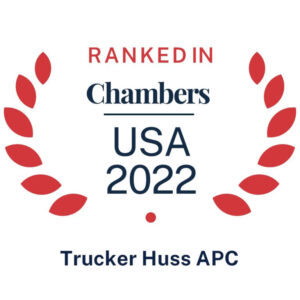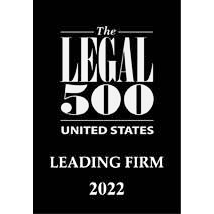JAHIZ NOEL AGARD, September 2016
For those interested in the law of ERISA forum selection clauses, 2016 has been a year to remember. The majority of courts to address this issue have ruled in favor of enforcing forum selection clauses. However, going against the trend, two federal district courts recently determined that forum selection clauses are automatically invalid and unenforceable within the ERISA context: (a) Dumont v. PepsiCo, Inc., 2016 WL 3620736 (D. Me., June 29, 2016); and (b) Harris v. BP Corp. N. Am. Inc., 2016 BL 221805 (N.D. Ill., July 8, 2016). Prior to these summer cases, only two reported district court cases held that forum selection clauses in ERISA plans are inconsistent with the statute and therefore unenforceable. 1
Significantly, at the beginning of this year, the U.S. Supreme Court declined to review a case in which the Sixth Circuit Court of Appeals had ruled in favor of enforcing a plan’s forum selection clause. See Smith v. Aegon Companies Pension Plan, 769 F.3d 922 (6th Cir. 2014), cert denied, 136 S.Ct. 791 (2016). It is difficult to tell whether the Supreme Court’s decision not to consider Smith is the final word on forum selection clauses in ERISA plans. While the Solicitor General expressed its position that forum selection clauses are inconsistent with ERISA’s protections in favor of participants and beneficiaries, it also argued that the Supreme Court should not consider Smith, because there is currently no split among the various Circuit Courts of Appeal on the subject of the enforceability of forum selection clauses in ERISA plans. Thus, the Solicitor General’s position is that the Supreme Court should follow its “usual practice of allowing percolation among the courts of appeals” before deciding the issue.
Background
Plan documents will often include a forum selection clause which requires that a participant must bring any lawsuit regarding the plan in a specified federal district court. In this way, the plan sponsor and administrator can anticipate responding to participant lawsuits within a single forum instead of in any district court across the nation. (In some instances, the chosen forum is arguably inconvenient for the participant, who may reside in a state other than the plan’s chosen forum.) Proponents argue that such forum selection clauses reflect a major goal of ERISA — to advance uniformity, predictability and efficiency in plan administration.
However, another (and arguably competing) goal of ERISA is, as stated in the statute, to protect the interests of participants by, among other things, “providing for appropriate remedies, sanctions, and ready access to the Federal courts.” ERISA section 2(b). Thus, the statute provides that a participant may bring a lawsuit in any of the three following venues: (a) where the plan is administered, (b) where the breach took place (generally interpreted as where the participant resided at the time of the alleged breach), or (c) where a defendant resides or may be found. ERISA section 502(e)(2). Typically, forum selection clauses narrow participants’ venue options for initiating lawsuits to where the plans are administered.
Two landmark Supreme Court cases — M/S Bremen v. Zapata Off-Shore Co., 407 U.S. 1 (1972), and Carnival Cruise Lines, Inc. v. Shute, 499 U.S. 585 (1991), describe the test for determining the enforceability of forum selection clauses. These cases hold that forum selection clauses are presumed valid and enforceable unless the party resisting enforcement “clearly show[s] that enforcement would be unreasonable and unjust, or that the clause was invalid for such reasons as fraud or overreaching.” M/S Bremen, at 15. Enforcement would be unjust, for example, if it resulted in a party being “effectively deprived of a meaningful day in court.” Id. at 18-19.
The fact that a forum selection clause was not the subject of specific bargaining between the parties does not make the clause automatically unenforceable; however, the affected parties should have notice of the clause and such non-negotiated clauses are subject to court scrutiny for fundamental fairness. Carnival Cruise Lines, at 593-595. Moreover, a forum selection clause “should be held unenforceable if enforcement would contravene a strong public policy of the forum in which the suit is brought, whether by statute or judicial decision.” M/S Bremen, at 15. This last test (i.e., public policy) was the primary basis for the holdings in the recent cases which found that forum selection clauses are unenforceable.
Dumont v. PepsiCo, Inc.
Dumont sued in the District of Maine regarding a dispute in the calculation of his retirement benefits. The plan sponsor and plan administrative committee moved to enforce the plan’s forum selection clause and transfer the case to the Southern District of New York. The court focused on the following facts: (a) the participant had worked at the company for decades (34 years before retiring); (b) he was fully vested in his retirement benefits; (c) he did not bargain for the terms of the plan; (d) the forum selection clause was added to the plan’s terms after he had already worked for 31 years at the company; and (e) it would be very costly for him to forgo the benefits of the contract (i.e., retirement benefits) because of disagreement with the addition of the forum selection clause. The Court emphasized that “[Dumont] could not have simply chosen to work for another employer, the way that plaintiffs [in other cases involving forum selection clauses] could have chosen another cruise line, a different hospital, or a new corporate business partner.” Dumont, at 4.
The court’s focus on the above facts appears to reflect a primary concern for fundamental fairness. Participants typically have no input on the terms of ERISA plans. However, a closer look at the case reveals that the court ultimately found the clause unenforceable because enforcement would contravene ERISA’s strong public policy of providing participants ready access to the federal courts.
The court was not impressed with PepsiCo’s arguments that as long as Dumont had access to some federal court, enforcement of the clause would not go against the stated public policy. The court quoted from a dictionary, emphasizing that “ready” means “‘immediately available or at hand; that can be had or used at once.’” Id. at 8. The court then concluded that the “ready” federal court for Dumont was in the District of Maine, where he resided. (Other courts, including the Smith court, have been less concerned with this point, and have given more weight to the terms of the plan itself.)
In addition, the court was not persuaded that forum selection clauses promote uniformity in the way that judges interpret plan terms. The court noted that judges within a federal district are not obligated to follow the decisions made by other judges within the same district. “Binding authority comes from that district’s court of appeals and the United States Supreme Court.” Id. at 9.
Harris v. BP Corp. N. Am. Inc.
As in Dumont, the Harris court found the plan’s forum selection clause unenforceable because it contravenes ERISA’s strong public policy of ensuring ready access to the federal courts. Harris sued in the Northern District of Illinois over a dispute involving a life insurance policy. BP and the insurance company, pursuant to the plan’s forum selection clause, moved to transfer the case to the Southern District of Texas, where BP is headquartered.
BP argued that ERISA’s venue provision is plain and unambiguous: it does not expressly prohibit forum selection clauses and therefore limiting the venue to one of the permissive options is consistent with ERISA. The court disagreed, noting that while the venue provision does not expressly prohibit forum selection clauses, it also does not expressly permit them. Thus, the court found ERISA’s venue provision ambiguous with respect to the permissibility of forum selection clauses. (In this respect, Harris goes further than most federal courts in suggesting that an element of a plan’s design that ERISA does not expressly allow might not be enforceable, even if the statute does not expressly prohibit it. By that logic, plan sponsors would have relatively little choice in how, exactly, they design their plans.)
However, the court found the overriding purpose and legislative history of ERISA is unambiguous in ensuring that participants can “pursue their rights without inordinate inconvenience.” Harris, at 6. The court noted that ERISA explicitly grants participants ready access to the federal courts. The court also noted that legislative history reveals Congress’s intent via ERISA’s enforcement provisions “to remove jurisdictional and procedural obstacles which in the past appear to have hampered effective enforcement of fiduciary duties.” Id. at 6. The court was not persuaded by arguments that “ready access” simply means access to any federal court. The court was of the opinion that accepting such a reading would lead to the re-emergence of obstacles ERISA was intended to remove.
The Harris court also discussed the careful balancing of divergent interests that ERISA represents: participants’ interest in promptly enforcing their rights, and plans’ interest in achieving uniformity, predictability and efficiency in their operations. Observing that employers and insurance companies, for the most part, have the resources necessary to defend lawsuits in the districts where their participants live and work, while participants are often at a financial disadvantage, the court concluded that “ERISA’s dual values are best served by preserving plaintiffs’ rights to sue in any of those venues set forth in [ERISA section 502(e)(2)] and permitting plans to specify the choice of law to prevent plans from being governed by numerous states’ laws.” Id. at 8.
Uncertain Future
Dumont and Harris represent a divergence from most of the past cases involving the enforceability of forum selection clauses. Where the law will settle remains to be seen. Both cases were sandwiched between two other 2016 cases which followed the majority: (a) Malagoli v. AXA Equitable Life Ins. Co., 2016 WL 1181708 (S.D.N.Y., Mar. 24, 2016); and (b) Mathias v. Caterpillar, Inc., 2016 WL 4202350 (E.D.Pa., Aug. 29, 2016).
Furthermore, the Smith Sixth Circuit case was decided by a divided panel, with a dissent generally reflecting the views found in Dumont and Harris. The Department of Labor (the “DOL”), without any success thus far, has consistently filed amicus briefs in support of the view that forum selection clauses in ERISA plans are invalid and unenforceable. Just recently, the Eighth Circuit Court of Appeals denied an Arizona plaintiff’s request to reverse a court order forcing her to pursue her claim under ERISA in a Missouri federal court based upon the plan’s forum selection clause. In re: Lorna Clause, 8th Cir., No. 16-2607, petition for writ of mandamus denied Sept. 27, 2016. Without any explanation, particularly to counter the DOL’s arguments in the amicus brief, the Eighth Circuit simply stated that the plaintiff’s request “has been considered by the court and is denied.” Id. at 1.
We can expect the law to further develop in the federal courts in the months and years to come. In the meantime, plan sponsors should review their plan documents and discuss with their counsel whether a forum selection clause makes sense for their plans.
______________________
1 Coleman v. Supervalu, Inc. Short Term Disability Program, 920 F.Supp.2d 901 (N.D. Ill. 2013); Nicolas v. MCI Health & Welfare Plan No. 501, 453 F.Supp.2d 972 (E.D. Tex. 2006). Some courts have found ERISA forum selection clauses either unenforceable on other grounds (e.g., inadequate notice to the plaintiffs) or irrelevant. Mezyk v. U.S. Bank Pension Plan, 2009 WL 3853878 (S.D. Ill. 2009); Wellmark, Inc. v. Deguara, 2003 WL 21254637 (S.D. Iowa 2003).




